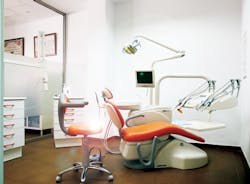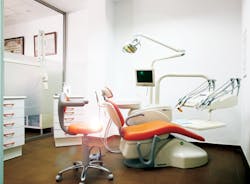It's a phenomenal time to be a practice owner
Don't be a dentist who just happens to own a business. Instead, be a business owner whose product is the delivery of dental services. In this article, Ken Rubin, CPA, explains how you'll find that it's a phenomenal time to be a practice owner if you follow this approach.
Anybody would be hard-pressed to identify a more valuable and appreciated profession than dentistry. Dentists take away pain, and they also help people look, eat, sleep, and even kiss better. In both 2013 and 2015, U.S. News & World Report ranked dentistry as the best career in the United States.1,2 In 2014, dentistry slipped slightly to third place.3
My grandfather and father were both self-employed dentists. I've been working with dentists as a certified public accountant (CPA) and business advisor for 30 years, and I passionately support self-employed dentists. My involvement with dentists has given me unique insight into the business side of dentistry and how it is changing.
You've likely encountered challenges due to lower reimbursements from managed care, ever-increasing overhead, increased regulation, the ongoing competition of corporate dentistry, the temporarily decreased demand for elective dentistry caused by the last economic recession, etc. Although it may not be apparent to most dentists, the opportunity for a self-employed dentist to develop, thrive, and enjoy the rewards of operating a successful business is actually better today than it has been at any other time I've seen during my career. As a dentist, you have paid your dues by spending many years obtaining higher education and postgraduate training. You are entitled to be financially rewarded and enjoy a wonderful life.
Dentists enjoy a very high profit margin compared to most other businesses. The average overhead ranges from 55% to 73% for dentists.4 In the past, the high profits from dental fees enabled dentists to operate businesses with zero business acumen. During the Great Recession of 2008-2009, most dental offices were down significantly in production per year (and cosmetic practices suffered even worse). It was an uncomfortable time for many dentists, and I heard a lot of complaints.
On the very bright side, the dip in production dentists experienced was absolutely nothing compared to the suffering that other industries experienced in losses of jobs and businesses, bankruptcies, foreclosures, divorces, and life-altering levels of stress. During that same period, businesses in other industries suffered when funding from lenders dried up. But lenders were-and still are-aggressively lending to dentists (and veterinarians) due to the minuscule default rate. Corporate America, Wall Street, and savvy, independent businesspeople have noticed that dental practices are predictably profitable when operated properly and have jumped on the bandwagon of building multioffice empires via acquisition and merger.
RELATED | How to get better loans and improve your financial position
Dental schools teach dentists to diagnose and fix problems with people's teeth and the surrounding tissues. Dentists are well-trained, competent clinicians who provide valuable services. Dentists should feel confident that they are poised to be successful in a great profession in which there is a failure rate of less than 1% because they have invested several hundred thousand dollars in themselves-the wisest investment they could make.
But the reality is that there is more to running a successful dental practice today than being a competent clinician. We all know that dentists don't learn how to operate a business in dental school (with rare exceptions). As a result, dentists learn what works and what doesn't mostly through trial and error, accepting that they will naturally make some business mistakes and hoping that they will not risk significant profit losses. Once dentists come to the realization that it is more important than ever to learn about operating their practices like businesses, I see their numbers really jump.
Owner-dentists' practices have an obvious advantage over practices owned or managed by nondentists; however, to really thrive in private practice today, dentists need to get help with the business side of dentistry. What most dentists do not realize is that this lack of business skills has a severe, long-term consequence for the dental profession: A large percentage of dentists will be relegated to working for someone else who does have the business knowledge, as "technicians," rather than owning their own practices.
It's a scary thing to go further into debt by becoming a business owner when you already have a ton of student loan debt. You may have heard that 96% of all new businesses fail within the first 10 years.5 What you may not have heard is that dentists, by contrast, are blessed with one of the lowest failure rates. Sadly, many new dentists jump into corporate dentistry due to dramatically exaggerated fears of failure and nightmarish stories about how difficult it is to manage a business. They miss out on the American Dream of owning a successful business. They are accountable to someone else, aside from the patients who sign their paychecks. Some find themselves pressured into high production (although this is not true of all corporate dental organizations). By opting for a "safe" paycheck, those dentists will never experience the American Dream; they will be making someone else rich.
RELATED | 'Corporate dentistry' 2.0: Apex360's special feature on dental support organizations
It is true that there can be headaches and hassles for business owners. It is also true that those headaches and hassles are diminished when the owner invests time up front by implementing systems that support the practice's policies and protocols. Nothing is left to chance, risk, or luck when the business owner clearly communicates with the employees what the expectations are for their conduct and performance. An investment of time and effort will pay off with massive dividends by creating a more efficient workplace, higher job satisfaction, a better team culture, and an overall better lifestyle.
A new era in dentistry has begun. If you want to increase the cash flow coming out of your practice and enjoy a better lifestyle, it is critical that you learn how to manage your business or hire the right experienced professional(s) to help you do so. Working with dental CPAs and other professional advisors who understand the unique needs and expectations of their dental clients can really give you a competitive advantage in today's new era of dentistry. The dentist who thrives financially is not the dentist who just happens to own a business; it's the dentist who realizes that he or she is a business owner whose product is the delivery of dental services. It's a subtle but significant difference. There has never been a more critical time to get serious about running your dental practice like a business!
References
1. Graves JA. The 25 Best Jobs of 2013. U.S. News & World Report website. http://money.usnews.com/money/careers/slideshows/the-25-best-jobs-of-2013/2. Published January 9, 2013.
2. Graves JA, McMullen L. The 25 Best Jobs of 2015. U.S. News & World Report website. http://money.usnews.com/money/careers/slideshows/the-25-best-jobs-of-2015/2. Published January 13, 2015.
3. Graves JA. The 25 Best Jobs of 2014. U.S. News & World Report website. http://money.usnews.com/money/careers/slideshows/the-25-best-jobs-of-2014/4. Published February 12, 2014.
5. Carmody B. Why 96 Percent of Businesses Fail Within 10 Years. Inc. website. http://www.inc.com/bill-carmody/why-96-of-businesses-fail-within-10-years.html. Published August 12, 2015.
Ken Rubin, CPA, has been helping dentists improve their practices and enjoy a better quality of life for 30 years. He is a frequent author and lecturer, and he is the cofounder of the Academy of Dental CPAs (ADCPA). His certified public accounting and business advisory firm, Ken Rubin & Company, Dental CPAs, helps dentists nationwide with practical and proactive advice. He can be reached at (619) 299-6161 or [email protected]. Visit his website at KenRubinCPA.com.

